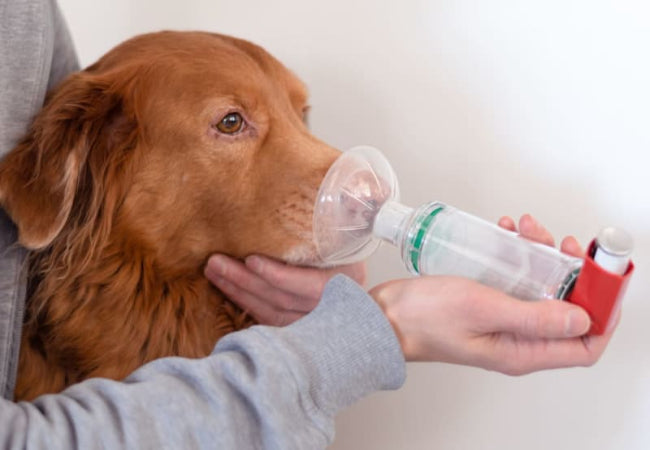Can Dogs Have Asthma in 2025? Vet Guide to Symptoms & Care 🐶💨

In this article
Can Dogs Have Asthma in 2025? Vet Guide to Symptoms & Care 🐶💨
By Dr. Duncan Houston BVSc
🔍 What Is Canine Asthma?
Dogs can indeed develop asthma—formally called allergic airway disease or allergic bronchitis. It’s less common than in cats, but the underlying process is similar: inhaled allergens inflame smaller airways, leading to cough, wheeze, and breathing issues.
⚠️ Typical Triggers
Known allergens include:
- Mold spores, dust mites, pollen, and pet dander
- Environmental irritants like smoke, perfumes, air fresheners, and cleaning products
🐾 Who Is Most at Risk?
- More often seen in small-to-medium breeds
- Usually diagnosed in middle-aged dogs, though young dogs can be affected too
👃 Signs & Symptoms
- Persistent coughing and wheezing
- Heavy panting, difficulty breathing, labored breathing
- Blue or pale gums in severe cases
- Lethargy and loss of appetite during flare-ups
🔬 How Is It Diagnosed?
- Vets conduct a physical exam and listen for abnormal lung sounds
- Chest X-rays help confirm airway inflammation and rule out infections or heart disease
- Further tests—like heartworm screening or bronchoscopy—may be required
- Video of symptoms can aid diagnosis when signs aren't present during the vet visit
💊 Treatment & Management
- Anti-inflammatory steroids: Reduce airway swelling
- Bronchodilators (e.g., albuterol): Relax airway muscles via inhalers or nebulizers
- Antihistamines: When allergies are an underlying cause
- Rescue inhalers: Oxygen and short-acting bronchodilators for acute attacks
🛠️ Prevent Flare‑Ups at Home
- Eliminate triggers—avoid smoke, fragrances, cleaners, aerosols
- Use HEPA air purifiers and maintain clean indoor air
- Bathe and groom your dog regularly to reduce dander
- Manage weight—overweight dogs struggle more during episodes
🏥 Emergency Action Plan
- Stay calm and avoid stressing your dog
- Administer prescribed inhalers or bronchodilators immediately
- Use a nebulizer and provide oxygen if available
- Get veterinary care urgently if symptoms persist or worsen
🔚 Final Thoughts
While less common than in cats, canine asthma requires a careful combination of medical treatment and environmental control. With accurate diagnosis, appropriate medications, and homes free of irritants, many asthmatic dogs can enjoy comfortable, active lives 💨🐾.






